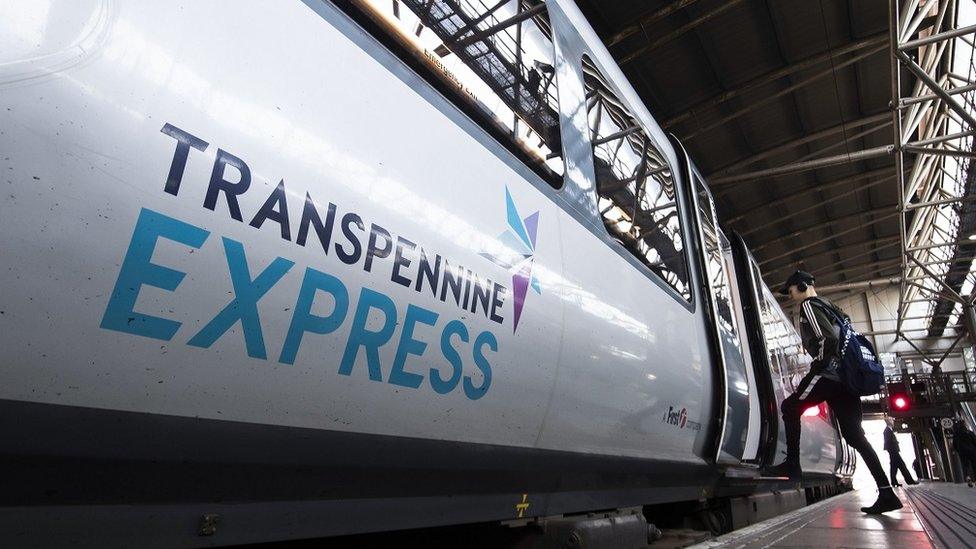TransPennine Express worst for train cancellations
- Published
- comments
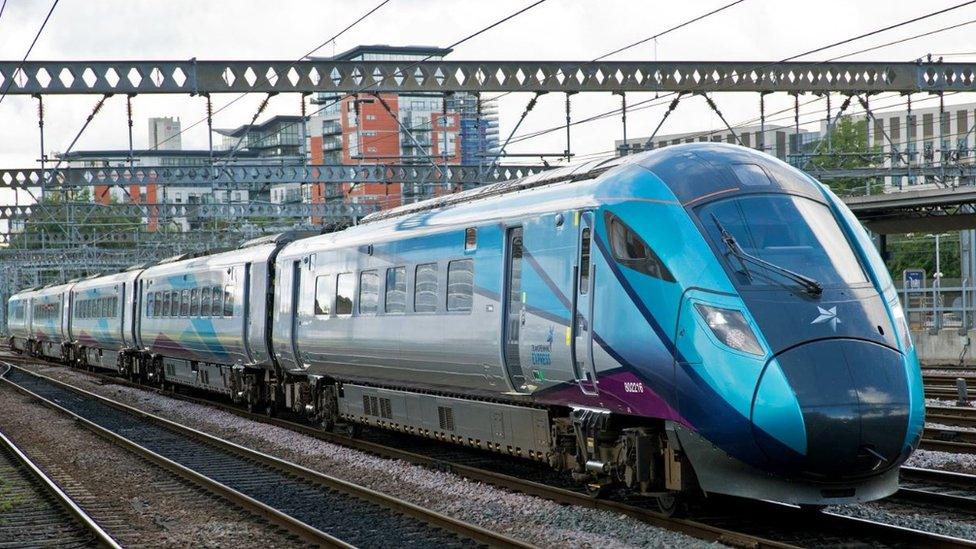
Train operator TransPennine Express (TPE) cancelled around one in six of its services in the four weeks to the end of March, new figures show.
The regulator said the cancellation rate leapt from 5.8% to 17% when trains cancelled up to 10pm the night before due to staff shortages were included.
It was the highest in the country, but down on the 23.8% cancellation rate in the previous period to 4 March.
TPE says cancellations have come down after it put a recovery plan in place.
The troubled company's current contract ends next month.
The Transport Secretary has insisted he has not yet decided whether to renew it.
The operator, which runs services across the North of England and into Scotland, has been criticised for months of poor performance.
It has struggled to deliver all its planned services, amid staff shortages it has blamed on staff sickness and a training backlog, and amid poor industrial relations.
The Labour Party, regional mayors and some MPs have said TPE's contract should be removed.
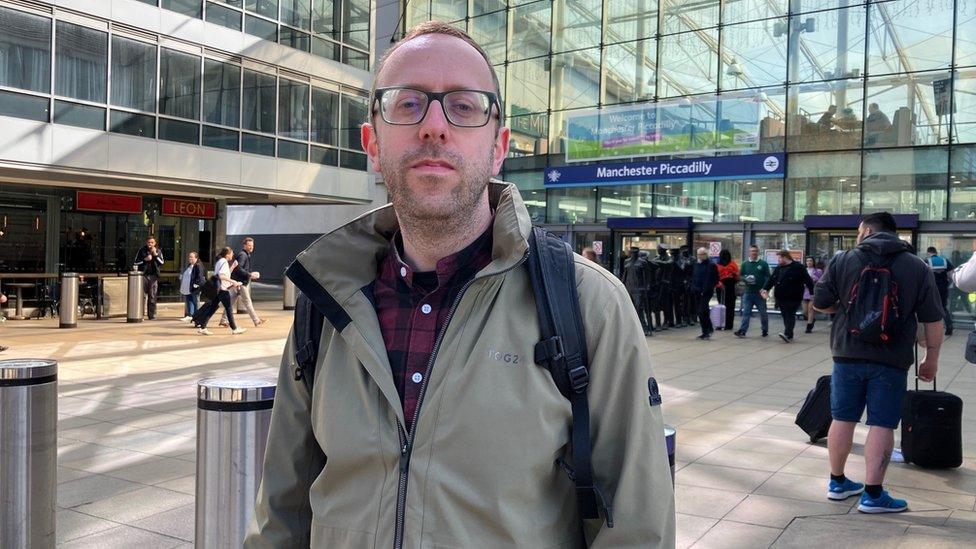
Rowan Burnett says he has seen no improvement in TPE services
Rowan Burnett, who travels on TPE's trains from his home in Marsden, West Yorkshire to work in Manchester, told the BBC in January that regular cancellations and delays were a source of daily stress.
This week, he said: "I would love to tell you a positive story or a turnaround in the last quarter, but no it hasn't improved.
"I still wake up every day, check my phone, see the swathe of red across my cancelled trains. Then I have to make the best of the commute one way and then hopefully back home."
Mr Burnett wants to use the train as it is more sustainable, but feels trust has been eroded because he is not confident he can be in the right place at the right time.
He said whichever company ran the service needed to be held accountable. "I personally can't carry on like this", he added.
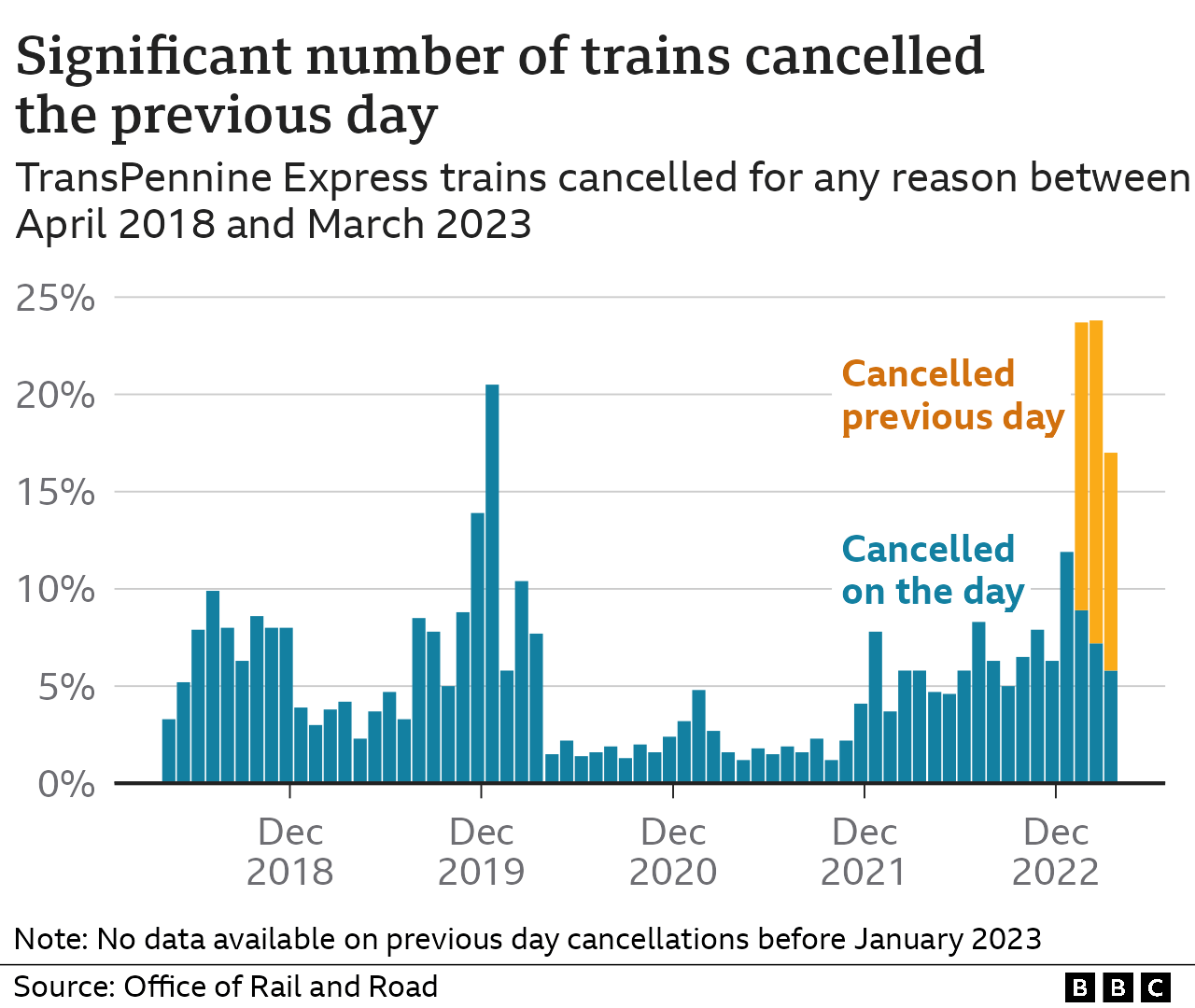
On Wednesday, Transport Secretary Mark Harper said the current level of service had been "unacceptable", and if he thought TPE was not capable of improving, "no option is off the table".
He told the Transport Select Committee he had to make a decision that was "legally defensible" by examining all of the evidence about the service and the "capacity of the company to improve those services".
In January, TPE's managing director admitted to the BBC services had not been good enough, and said the company had a recovery plan to do better.
For the third month in a row, figures from the Office of Road and Rail show TPE used pre-planned cancellations - also called P-coding advance cancellations - because of a lack of available staff more than any other operator in Britain.
However, it has cut its use of "P-coding" when not enough staff are available by nearly half.
A spokesperson for TransPennine Express said: "We introduced our recovery plan at the beginning of February to reduce cancellations and provide greater reliability and stability for our customers.
"As a direct result of this plan, we have seen a 40% reduction in cancellations, and continue to work to bring these numbers down in the coming weeks and months."
The overall rate of cancellations at train companies across Britain rose from 3.3% to 3.7% for the same period.
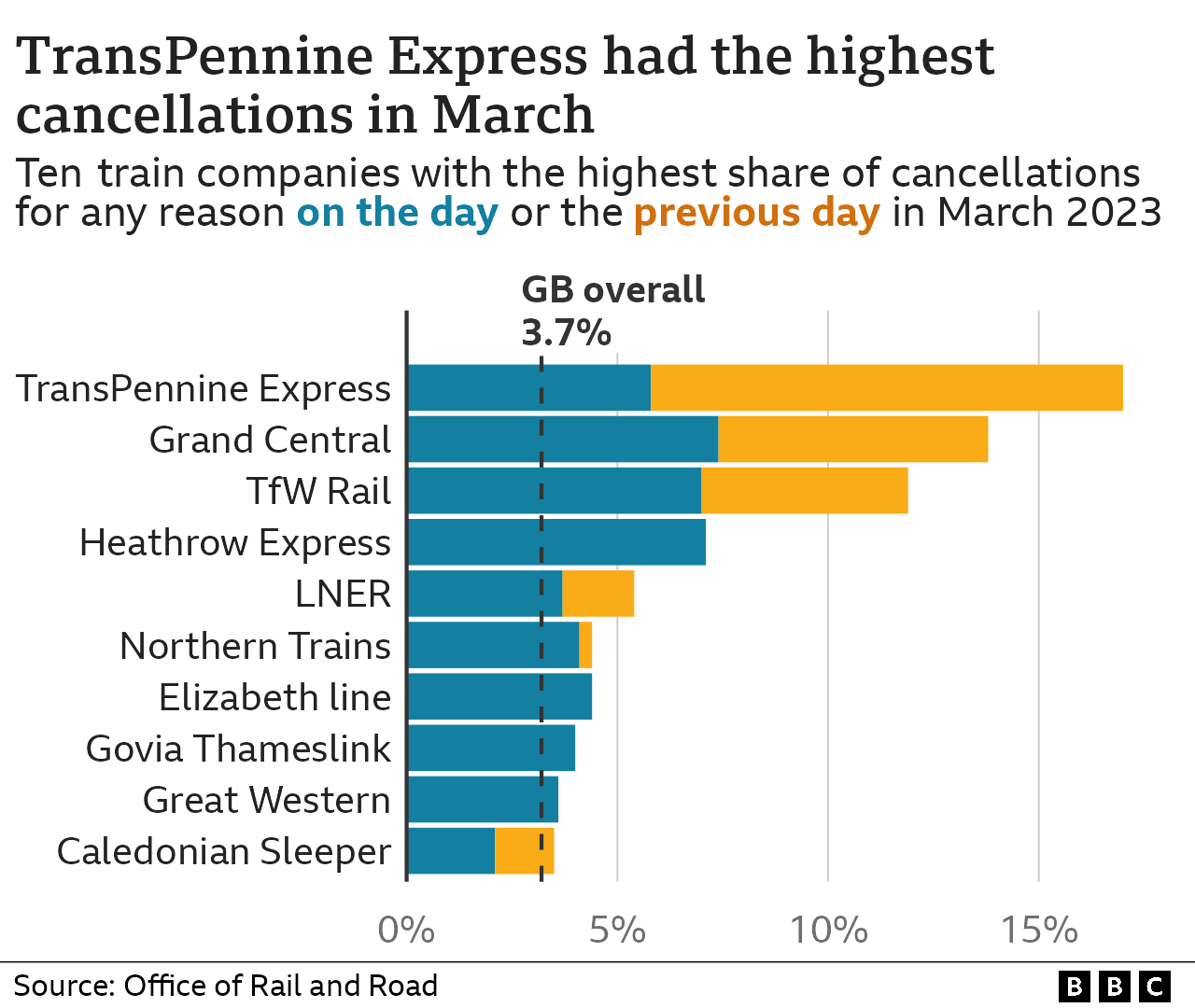
Additional reporting by Rob England
Related topics
- Published11 May 2023
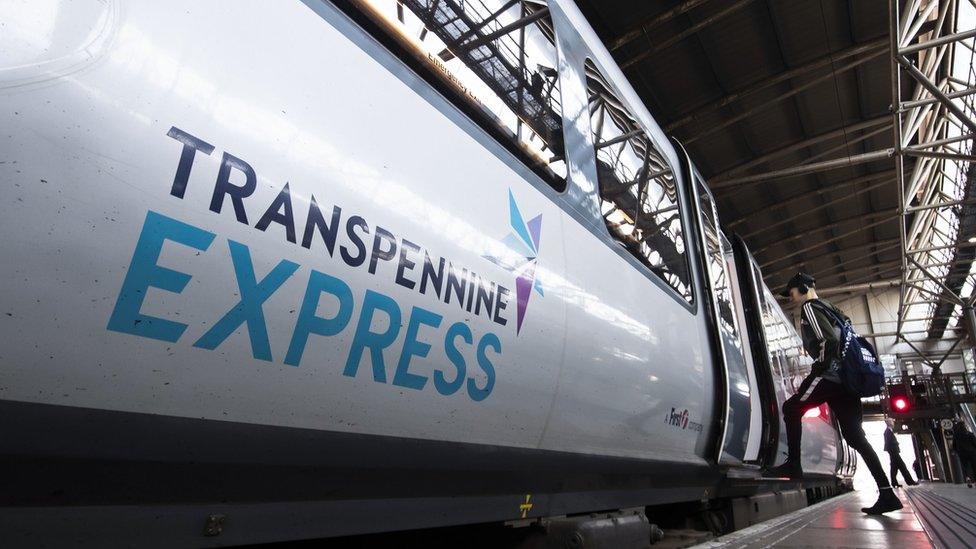
- Published17 April 2023

- Published17 February 2023
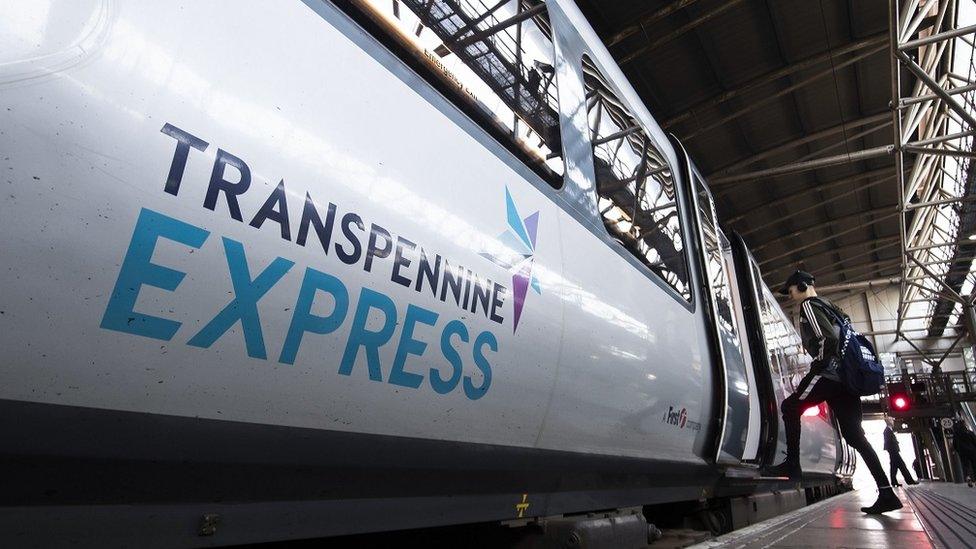
- Published27 January 2023
